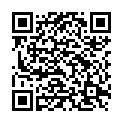|
|
|
| Module code: MST.SKI |
|
|
4PA (4 hours per week) |
|
5 |
| Semester: 5 |
| Mandatory course: no |
Language of instruction:
English/German |
Assessment:
Project with presentation
[updated 06.11.2020]
|
KI566 Computer Science and Communication Systems, Bachelor, ASPO 01.10.2014
, semester 5, optional course, technical
KIB-IROB (P221-0132) Computer Science and Communication Systems, Bachelor, ASPO 01.10.2021
, semester 5, optional course, technical
KIB-IROB (P221-0132) Computer Science and Communication Systems, Bachelor, ASPO 01.10.2022
, semester 5, optional course, technical
MST.SKI (P221-0132) Mechatronics and Sensor Technology, Bachelor, ASPO 01.10.2012
, semester 5, optional course, technical
MST.SKI (P221-0132) Mechatronics and Sensor Technology, Bachelor, ASPO 01.10.2019
, semester 5, optional course, technical
MST.SKI (P221-0132) Mechatronics and Sensor Technology, Bachelor, ASPO 01.10.2020
, semester 5, optional course, technical
PIBWI08 Applied Informatics, Bachelor, ASPO 01.10.2011
, semester 5, optional course, informatics specific
PIB-IROB (P221-0132) Applied Informatics, Bachelor, ASPO 01.10.2022
, semester 5, optional course, informatics specific
Suitable for exchange students (learning agreement)
|
60 class hours (= 45 clock hours) over a 15-week period.
The total student study time is 150 hours (equivalent to 5 ECTS credits).
There are therefore 105 hours available for class preparation and follow-up work and exam preparation.
|
Recommended prerequisites (modules):
None.
|
Recommended as prerequisite for:
|
Module coordinator:
Prof. Dr. Steffen Knapp |
Lecturer: Prof. Dr. Steffen Knapp
[updated 01.10.2020]
|
Learning outcomes:
After successfully completing this course, students will be able to use their programming skills to make system-specific scripting languages usable. Based on the example of the collaborative and non-collaborative industrial robots used, students will learn how to factor the physical hardware limitations into the implementation. In addition, they will be aware of the need to comply with safety-relevant legal requirements when using industrial robots.
Students will be able to independently develop solutions for common robot applications in industrial manufacturing.
In addition to the professional qualifications in the (interdisciplinary) project team, they will also gather experience in assuming professional and organizational responsibility.
[updated 06.11.2020]
|
Module content:
During this course, students will cover how to program six-axis collaborative industrial robots. The goal is the development of plugins using a system-dependent script language.
First Part (lectures, practical exercises):
- Safety aspects when using industrial robots
- Dealing with robot hardware
- System dependent script language (with UR as an example)
- Development of system-specific plug-ins UR CAPS (using UR as an example)
Second Part (project):
Development of plug-ins for integration into the control software of the robots to solve common industrial problems (e.g. assembly processes, Pick&Place)
[updated 06.11.2020]
|
Teaching methods/Media:
Lecture, seminar, project
[updated 06.11.2020]
|
Recommended or required reading:
http://www.i-botics.de/wp-content/uploads/2016/08/UR3_User_Manual_de_Global.pdf
https://www.universal-robots.com/download/?option=15833
[updated 06.11.2020]
|


